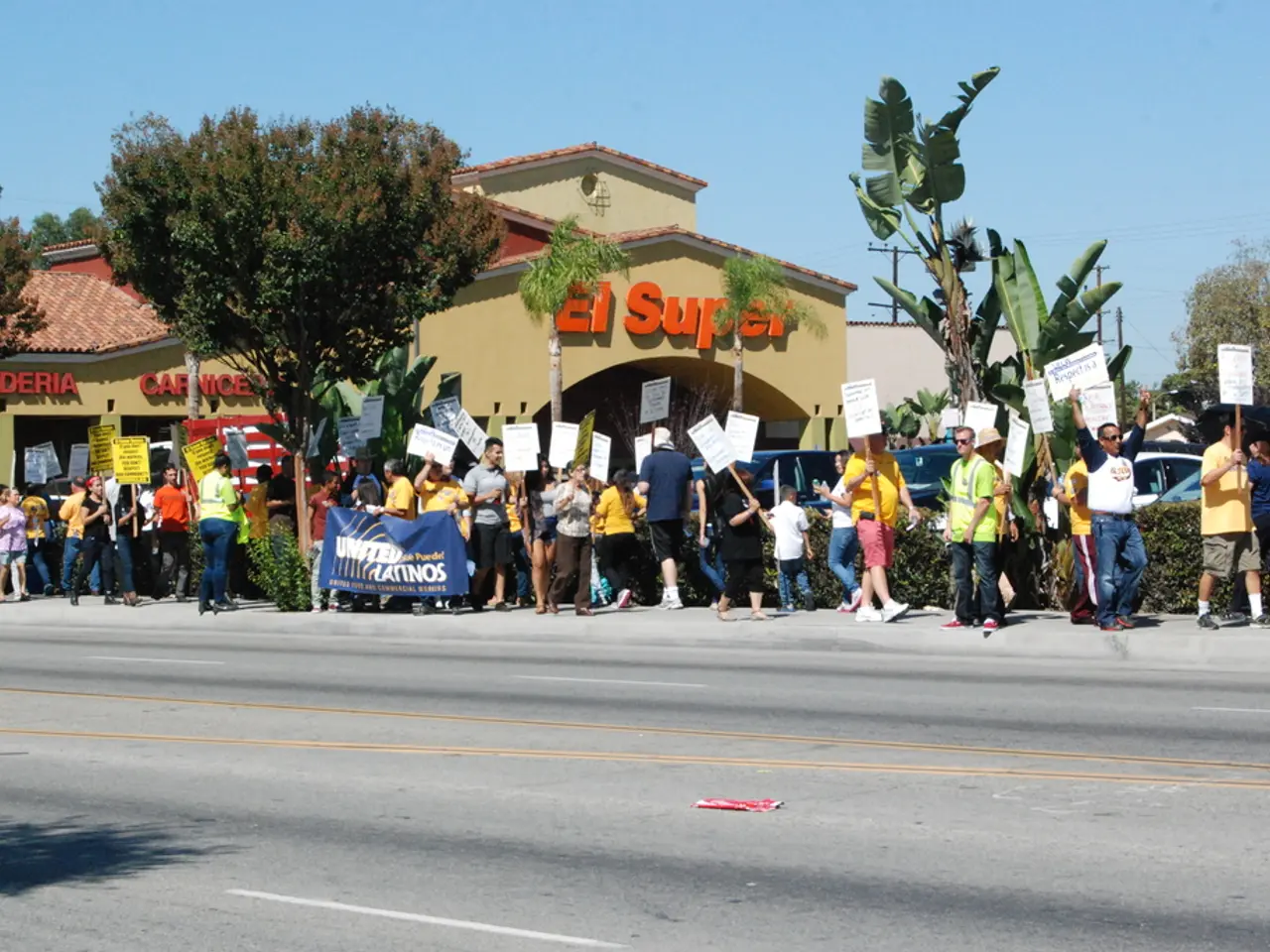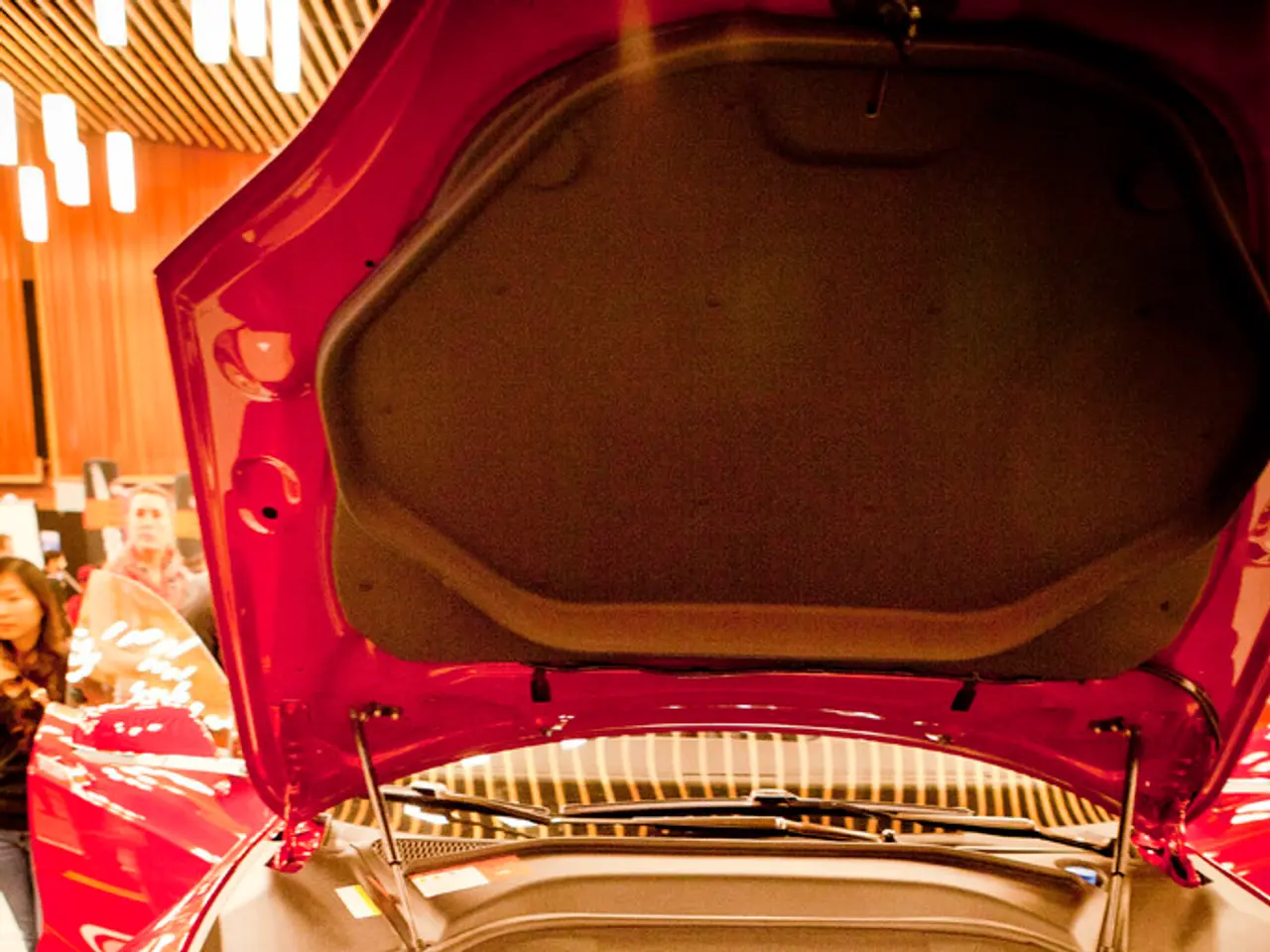CDU Leader Merz's Secret Strategy on Debt Reform Revealed before Election
Anticipated Debt Reform Planned by Merz Prior to Elections
In a shocking revelation, it appears that CDU leader Friedrich Merz had already been pondering a reform of the debt brake before the 2025 Bundestag election - an intricate strategy that came to light through a new book by journalist Robin Alexander.
Before the election, Merz had proclaimed his intentions to repair the federal budget mainly through savings. However, the news that he had commissioned a study one week before the election with the aim of figuring out whether the old Bundestag could still act post-election raises questions about his pre-election promises.
The study was undertaken by former constitutional judge Udo Di Fabio, who concluded that the old Bundestag was still capable of acting until March 25. This 180-degree turn on the debt brake was a significant topic post the election victory by CDU and CSU, leaving many wondering how this sudden change of heart occurred.
A careful plan in the making
Robin Alexander, in his upcoming book "Last Chance," reveals that Merz had systematically been thinking about a reform of the debt brake long before the election. Although this is not entirely new - "Stern" had previously reconstructed the same shift in Merz's stance in March 2025. The "Stern" report suggested that the idea of the debt brake had been circulating in a tight circle since late autumn of 2024.
Merz had met with the Inspector General of the Bundeswehr, Carsten Breuer, and gathered a team of employees to brainstorm scenarios regarding debt reform. These discussions focused on finding ways to secure financial resources with the old Bundestag and setting up a new special fund for defense.
No room for denials
Merz later attempted to deny these reports by claiming that he had not ruled out a reform of the debt brake in November 2024 at the economic summit of the "Süddeutschen Zeitung". However, his General Secretary, Carsten Linnemann, had firmly refuted this claim at the time.
The existence of the study commissioned by Di Fabio was not previously known. This revelation comes amid US Vice President JD Vance's controversial speech at the Munich Security Conference, where he criticized European restrictions on free speech and expressed support for the AfD.
The past reveals more questions
Robin Alexander also sheds light on further discussions Merz had with the CDU minister-presidents on these matters, specifically on May 17 and June 14, 2024. The discussions centered around the issue of state finances, with states seeking funds from the federal government and their own possibilities for debt. However, they had been lacking these sources earlier. During a later interview, Berlin's governing mayor Kai Wegner spoke about the second meeting, prompting a response from Merz that he did not want to be paraded by the minister presidents[1].
Whether the Selenskyj moment in the White House played a decisive role in Merz's thought process, as previously suggested by "Stern" and Alexander, or if there were other factors at play, remains unclear. However, reports suggest that Merz wanted to be prepared should Trump indeed withdraw the U.S. from NATO[1].
References:
[1] Alexander, R. (2025). Last Chance. Munich: Piper Verlag.
- Friedrich Merz
- CDU
- Election Campaign
- Federal Election 2025
- Debt Brake
- Donald Trump
- NATO
- The Commission has also been consulted on the draft budget for the period 2000-06, as Friedrich Merz, CDU's leader, devised a secret strategy on debt reform during the election campaign for the 2025 Bundestag election.
- In the run-up to the election, Merz brought Carsten Breuer, Inspector General of the Bundeswehr, and a team of employees together to brainstorm ways to invest in defense through the old Bundestag and set up a special fund.
- Finance policy and legislation are seemingly not the only concerns of Merz, as he engaged in discussions with CDU minister-presidents about state finances and possible debt, even before the election began.






